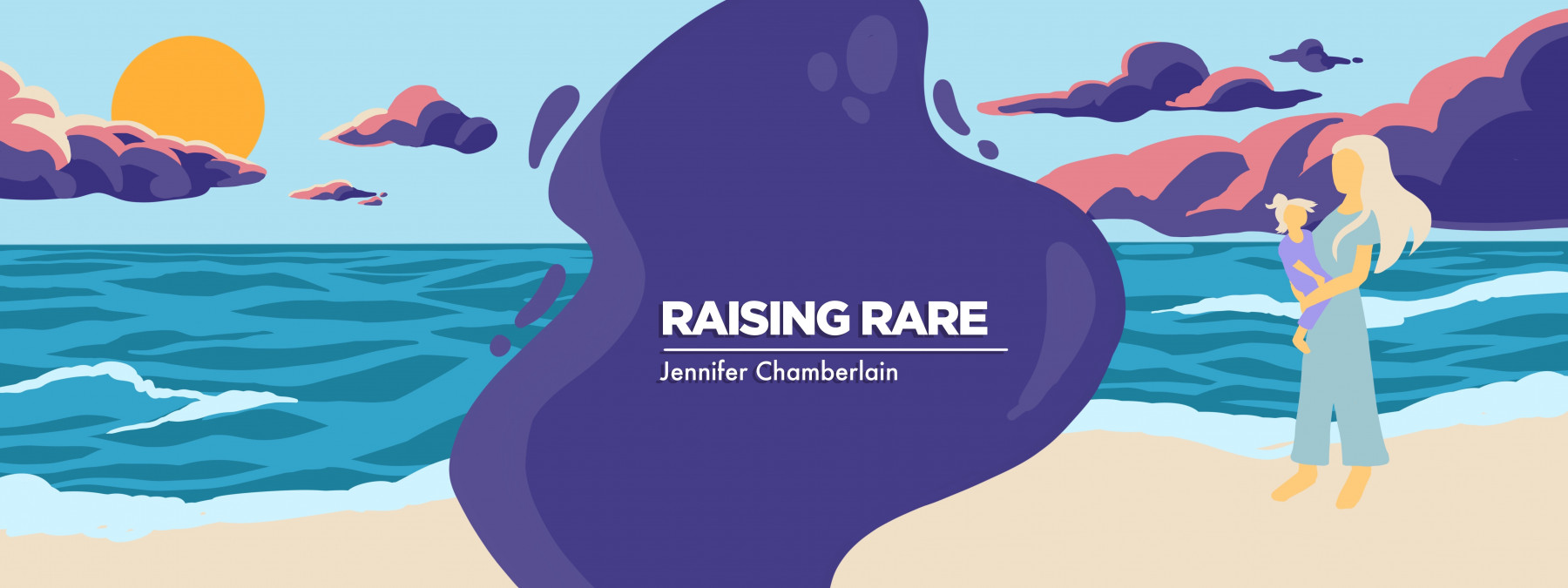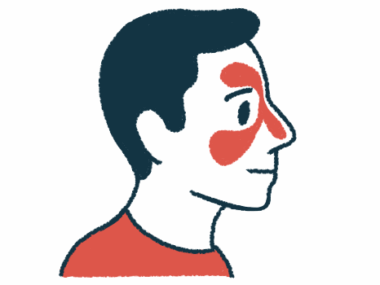Handling treatment compliance issues as a cystic fibrosis parent
A mother searches for ways to help and support her 5-year-old
Written by |

I nearly fell asleep in the bath the other night. It was after a particularly hard day with my daughter, Claire, who has cystic fibrosis (CF), and I was exhausted. The night had ended in screaming and tears once again.
In the last few weeks, it feels like there’s been a constant power struggle in our home. My sassy 5-year-old is no longer a compliant baby. Claire used to make her daily treatment time, dare I say, pleasant. It was our special time. Now she hates it, often screaming about how unfair it is. Treatment resistance has officially entered the equation.
This recent opposition instantly invoked a deep fear in me, because I truly don’t know what to do. I now realize how little control I have over Claire’s compliance with her treatment. That illusory sense of control I had over her regimen feels like it’s slipping from my grip incrementally, day by day.
All grown up
Part of me is fine with her taking ownership of her disease. She’s growing up and becoming an amazingly independent little girl in so many ways that make me proud. Yet I also feel anxious about what her relationship to cystic fibrosis will be like if I don’t parent her in a certain way during this critical time.
I don’t want to say something that will make her view her disease or its management in the wrong light. I don’t want to be too mean or too nice about the things she needs to do. It feels like a huge responsibility to shape her into a happy and willing adult who is prepared to care for her extensive health-care needs.
Over the last five years, I’ve been so consumed with taking care of Claire that I didn’t even think about what I would do when she started understanding, questioning, and challenging what keeps her healthy.
How do I explain to a 5-year-old how important daily nebulizer treatments are or why she has to take pills when her classmates don’t? All she wants to do is be a kid. I understand that. When she expresses anger at her situation, I question if I should validate her hate for this disease. I want her to know I hate it just as much, but I also want to keep her spirits up.
Searching for answers
Desperate for a solution, I sought out information from our clinical social worker, the internet, and even a book. I was grateful to learn from all of these sources that validating a child’s feelings about their disease is one of the most crucial components. Sometimes kids just need to hear that their feelings are heard and understood. We can sit with them in the pain, anger, and sadness. It’s just important not to stay in that spot.
Another key tool I learned about was the power of choices. I have been using this type of parenting strategy with our neurodivergent son but never thought to apply it as much with Claire. The book I found in my search, “Parenting Children with Health Issues,” brought up a truly powerful point. One of the co-authors, Lisa Greene, is also a cystic fibrosis mom. She explained that children with health issues often feel like things are not within their control. It makes sense. They may have to do things they don’t want to do or feel obligated to do much more than their peers.
But when you give a child a choice, it gives them some sense of agency. If you bring choices into the equation before your child starts resisting, that’s where the magic happens. If I remember to implement it early enough, this strategy works most of the time with Claire’s treatment resistance. When I know a treatment is coming up, I think of a choice to present to her. It could be as simple as whether she would like to do it before or after her bath.
I think it gives her a sense of control over that moment. On the days I present a choice in a calm way early on, usually I get her cooperation. I also started a reward system at the urging of our social worker and other parents.
There’s no manual on raising a child with cystic fibrosis; it’s a process of learning as you go. But nothing is stronger than the hope for your child to live a long, happy life as you encourage them along the way. I can only hope that, one day, Claire will understand why I did the things I’m currently doing and look back on these days with grace, recognizing that I was doing my best.
Note: Cystic Fibrosis News Today is strictly a news and information website about the disease. It does not provide medical advice, diagnosis, or treatment. This content is not intended to be a substitute for professional medical advice, diagnosis, or treatment. Always seek the advice of your physician or other qualified health provider with any questions you may have regarding a medical condition. Never disregard professional medical advice or delay in seeking it because of something you have read on this website. The opinions expressed in this column are not those of Cystic Fibrosis News Today or its parent company, Bionews, and are intended to spark discussion about issues pertaining to cystic fibrosis.








Douglas Hulme
I think it's very important to stick to a schedule and to do the treatments. That being said, on rare occasions, maybe once or twice a month, treatments get skipped because of life. When you get home late from an event and the child is asleep is probably the biggest reason for skipped treatments. With Trikafta, I feel more at ease when this happens, versus before. You have to schedule your family's life around treatments. That means set wake up and bedtimes. We do treatment in after wakeup and at night before bath/shower. Try and keep the treatment times set and plan ahead if you have events and you need to change treatment times if it is a one off event. I would not constantly move treatments to suit life, I would make your life suit the treatments.
Cynthia Thelen
Try it with an adult CF patient. Even more difficult.